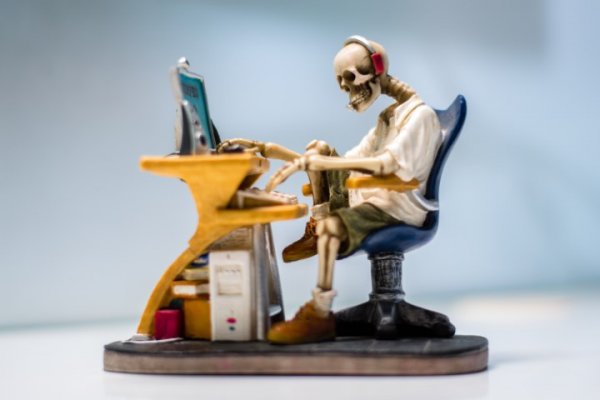If you've ever wondered why your computer is slow, you're not alone. Many people ask themselves this question on a daily basis. Computers are a staple in daily life, whether for work, school, or entertainment. They are generally very fast and efficient machines. However, there are times when a computer may start to run slow. There are a few reasons why this may happen. Here is a list of the 5 most common causes of slow computers and fixes to help you out.
Over time, as you add more and more programs, files, and browser data to your computer, it will naturally start to slow down. There are a few things you can do to help speed it back up again, like deleting unnecessary files and programs, running a disk cleanup utility, and defragmenting your hard drive. But if your computer is really slowing down, it might be time for an upgrade.
Another reason your computer may be slow is because the hard drive is full. This can happen even if you don't have a lot of programs installed. Over time, temporary files and other junk accumulate and take up space on your hard drive. This can lead to longer load times and decreased performance. Deleting unnecessary files and cleaning up your hard drive can help speed up your computer.
One of the primary reasons your computer may be slow is because it doesn't have enough RAM to handle all the tasks you're asking it to do. When you have too many programs open or are running complex processes, your computer can start to drag. Adding more RAM is an easy way to give your computer a boost and can make a big difference in overall speed and performance.
If your computer is running slowly, one possible explanation is that it is using outdated hardware or software. In order for your computer to run properly, it needs the latest drivers or updates. You can usually find these on the manufacturer's website. If you can't find them there, try searching for them on Google.
Updating your drivers or software can be a hassle, but it's often necessary in order to keep your computer running smoothly. If you don't update your drivers or software, you may start to experience problems with your computer. For example, your computer may start to freeze up or crash. In some cases, outdated drivers or software can even cause security vulnerabilities.
So if you're wondering why your computer is running slowly, one possibility is that it's using outdated hardware or software. We have done a lot of reviews on the best automatic driver updating tools available right now. So check out that list if you are thinking that your drivers are the cause of a slow pc..
When you open a file on your computer, the system has to search through all of the fragments to find the one that you want. This can take a long time, and it can make your computer seem slow.
There are a few things that you can do to help reduce the number of fragments on your hard drive. One is to defragment your drive regularly. You can also try to avoid creating large files that would need to be fragmented in the first place.
If you have a lot of small files, it might also help to store them in a compressed format. This way, they will take up less space on your hard drive and they will be easier for the system to find when you need them.
A computer can slow down for a number of reasons, but one common culprit is a virus or malware infection. These malicious programs can bog down your system resources, making everything from loading web pages to starting up programs take longer than usual. In some cases, viruses and malware can even prevent you from using your computer at all.
If you suspect that your computer has been infected with a virus or malware, there are a few things you can do to try and clean it up. First, run a full scan of your system with an anti-virus program. If you don't have one installed, there are many free options available online. Once the scan is complete, it should remove any malicious software it finds.
If your computer is still running slowly after running a virus scan, there may be other issues at play.
There could be a few reasons why your computer is slow. A good place to start is by trying a system optimizer, which can help clear out old files and speed up your computer. Another option is to run an anti-virus program, which can scan for and remove any malware that might be slowing down your machine. Sometimes, simply restarting your computer can also help Speed up a slow PC.
There are many factors that can slow down your computer. We hope this article helped you identify some of the possible causes and find a solution to help speed up your computer.





